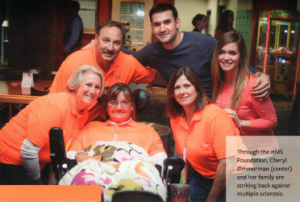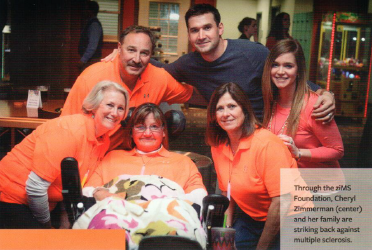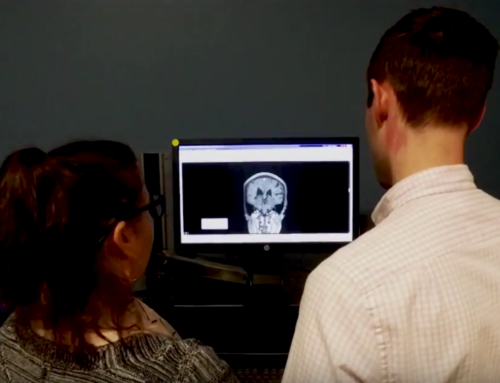[vc_row][vc_column][vc_column_text] RYAN ZIMMERMAN, A FIRST BASEMAN FOR THE WASHINGTON NATIONALS,
RYAN ZIMMERMAN, A FIRST BASEMAN FOR THE WASHINGTON NATIONALS,
understands first-hand the impact of multiple sclerosis (MS) on patients and their families. In 1995, when Ryan was just 11 years old, his mother Cheryl was diagnosed with the debilitating disease of the central nervous system. He and younger brother Shawn grew up witnessing the devastating toll of MS as their mother gradually lost the ability to walk, to perform fine motor tasks, and to carry out daily needs such as eating and showering-. Ryan decided that someday he wanted to help others dealing with MS.
A former standout on the UVA’s baseball team, Ryan established the ziMS Foundation in 2006—a year after he was drafted to the Nationals—to support MS research and education programs. Since 2008, the foundation has contributed more than $1 million to UVA’s Department of Neurology to fund research, clinical services, and fellowships for the James Q. Miller Multiple Sclerosis Clinic. UVA has been the foundation’s top beneficiary.
“My family gave me the support to fulfill my dreams, and the Washington Nationals gave me the opportunity to play the game I love at the highest level in our nation’s Capitol,” says Ryan, a member of UVA’s Class of 2006 and president of ziMS Foundation. “I am thrilled to have launched a foundation that can make a real impact in the life of my family, as well as many others afflicted by MS.”
 The ziMS Foundation hosts a number of fundraising efforts each year, including Strike Down MS, an annual bowling event in Charlottesville that supports UVAS MS program. As UVA strives to attain national prominence in MS care and clinical research, the ziMS Foundation partnership has proved extremely valuable.
The ziMS Foundation hosts a number of fundraising efforts each year, including Strike Down MS, an annual bowling event in Charlottesville that supports UVAS MS program. As UVA strives to attain national prominence in MS care and clinical research, the ziMS Foundation partnership has proved extremely valuable.
“The ziMS Foundation support has been critical as we continue to build a program that includes exceptional providers, diverse research opportunities, and successful partnerships with our patients,” says WA neurologist Myla Goldman. “The foundation has supported our team’s expansion, to most recently include a pediatric MS specialist. We have also been able to support the development and training of providers in whom we are fostering a lifetime commitment to MS-centered care. Our current healthcare system is not designed to support the multi¬faceted needs of a complex, chronically ill population, like we have in MS. Philanthropic support allows us to focus on what we think is best for our patients and their families and to feed the pipeline of future MS therapeutics and providers.”[/vc_column_text][/vc_column][/vc_row]








Leave A Comment